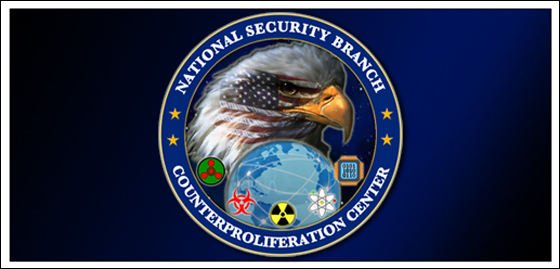FBI Counterproliferation Center

|
FBI Counterproliferation Center: Keeping weapons of mass destruction and other critical technologies out of the wrong hands. The spread of WMD and other technologies is a significant threat to U.S. national security. That’s why the FBI established its Counterproliferation Center (CPC) in 2011. A component of the National Security Branch, the CPC combines the counterproliferation expertise of the Bureau’s Counterintelligence Division, WMD Directorate, and Directorate of Intelligence. All FBI counterproliferation investigations are managed by the CPC, which leverages law enforcement and intelligence techniques to prevent the acquisition of WMD and critical controlled technologies. Collaborative efforts with the Bureau’s federal partners and the private sector play an important role in these efforts. |
| In Depth | |
|
Counterproliferation Inside the CPC Internal Partners |
External Partners |
02.12.15
| In the News |
|
01.27.16
|
Boston: Chinese national sentenced for providing U.S. goods to support Iran’s nuclear program. |
|
08.31.15
|
Washington: Russian nuclear energy official pleads guilty to money laundering conspiracy. |
|
06.11.15
|
Newark: Man admits smuggling $65 million in sensitive electronics to Russia. |
|
Multi-Agency Counterproliferation Efforts The FBI Counterproliferation Center works closely with other U.S. government centers, most notably:
|



